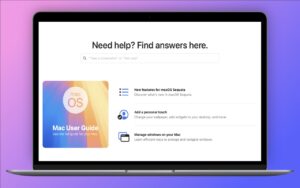Apple has maintained an iron grip on iPhone apps since it first rolled out the App Store in 2008, but the EU aims to change that. The European Union’s Digital Markets Act (DMA) is forcing Apple to open up iOS software, but it’s doing so in possibly the most obnoxious way it can. Some major tech firms, including Mozilla and Microsoft, are crying foul that Apple’s DMA proposal could actually make distributing apps more costly.
Apple has contended that its walled garden is better for security and privacy, but it will have to abide by the DMA to continue operating in Europe. Apple’s proposal for compliance is now available, and app developers aren’t pleased. While Apple may be nominally giving up control of iOS software, its plans would extract new fees from developers that could make it even more expensive to do business outside of the walled garden.
Mozilla was excited by the idea that it could finally distribute a version of its browser with a custom engine. Thus far, Apple has required all browsers to use the same WebKit engine as Safari. Mozilla spokesperson Damiano DeMonte tells The Verge the foundation is “very disappointed” with Apple’s proposal. While it would permit other browser engines, the apps in question need to be exclusive to Europe. According to Mozilla, building and maintaining two versions of Firefox would increase its costs.
Spotify is not mincing words, with CEO Daniel Ek calling Apple’s plan a “masterclass in distortion.” The company specifically calls out Apple’s intention to charge developers a new €0.50 fee for every download on an annual basis. Devs will also have to pay Apple a 17% fee for sales made outside the App Store. Spotify says attempting to drop the App Store could actually increase its customer acquisition cost by tenfold. And then there’s Microsoft, which was reportedly stymied in its attempts to sell Xbox games on the iPhone a few years back. Sarah Bond, the President of Xbox at Microsoft, called Apple’s DMA proposal a “step in the wrong direction” when reposting Ek’s statement.
We believe constructive conversations drive change and progress towards open platforms and greater competition. Apple’s new policy is a step in the wrong direction. We hope they listen to feedback on their proposed plan and work towards a more inclusive future for all. https://t.co/mDRI5KPJf6
— BondSarahBond (@BondSarah_Bond) January 29, 2024
The Digital Markets Act goes into effect this March, and Apple isn’t the only company affected. The law requires so-called “gatekeepers” to operate in a more fair and equitable manner. The European Commission identified numerous gatekeepers in the digital economy, including Google (search), Amazon (AWS), Meta (social media), and YouTube (online video). Apple, as the only source for iPhone software, was included in the list. The European Commission has yet to approve Apple’s implementation. It’s unclear if this loud opposition will change anything, though.



